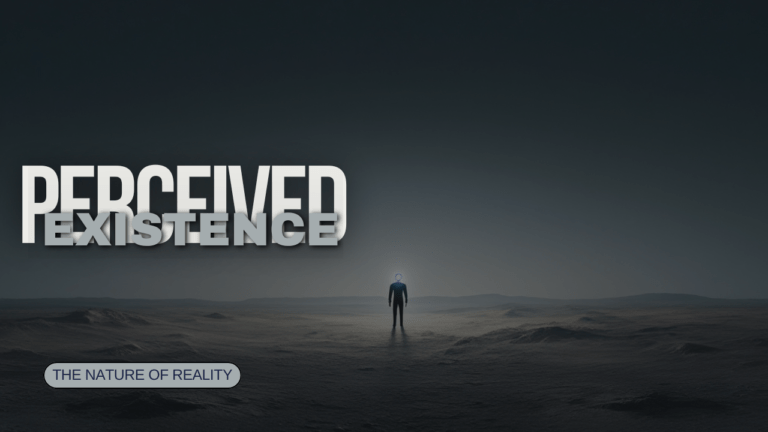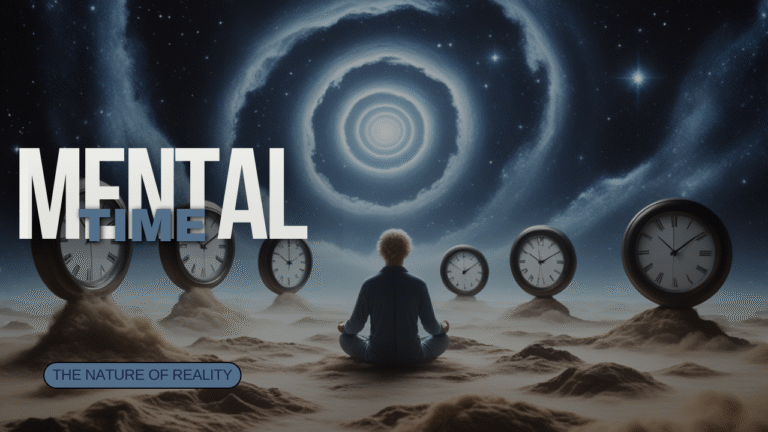What If the Future Can Change the Past?
What If the Future Can Change the Past?
Introduction
Time feels straightforward: past → present → future. But what if that arrow isn’t one-way? What if actions in the future could rewrite what’s already happened—allowing you to change history by acting in tomorrow?
This fascinating idea straddles quantum mechanics, theoretical physics, and bold philosophical exploration. As researchers push the boundaries of time travel, retrocausality, and simulations, it’s worth asking: can the future truly change the past? Let’s dive in.
What if the future could alter past events?
Some interpretations of quantum mechanics—especially retrocausality and the transactional interpretation—suggest particles may “signal” backward in time. That sounds wild, but experiments like the delayed choice quantum eraser hint at this possibility: measurement choices after a particle’s behavior seem to affect its earlier state.
If subatomic particles can “communicate” backwards, could larger systems do the same? Could future technologies or consciousness itself reach back and tweak historical events? While we can’t rewire World War II outcomes yet, the concept challenges our notion that the past is fixed—and opens the door to rewriting history, at least in theory.
Our Thoughts
At EdgyThoughts, we’re eager to stretch the comfort zone of what “possible” means. The idea that the future could influence the past isn’t just sci-fi—it’s rooted in genuine scientific inquiry. Even acknowledging it forces us to rethink free will, guilt, memory, and how we perceive truth. If time isn’t strictly linear, then our lives might be more fluid—and full of hidden connections—than we ever expected.
Pros and Cons of a Retractable Past
| Pros | Cons |
|---|---|
| Could resolve existential regret. | Risks paradoxes like “grandfather paradox.” |
| Opens creative, block-free thinking. | Undermines accountability and responsibility. |
| Gives new meaning to moral action. | Science hasn’t proven retrocausality at scale. |
| Deepens our understanding of consciousness. | May destabilize legal and ethical systems. |




Could changing the future be a form of time travel?
Arguably yes. If consciousness or advanced tech could project intentions backward in time—through quantum fields or exotic particles—it would function like time travel—but without physical movement. You’d “send” influence, not yourself.
Futurists speculate that entangled quantum systems or AI-generated feedback loops might serve as “time capsules,” enabling communication across temporal boundaries. For now, these ideas remain speculative—but they’re gaining momentum among researchers exploring quantum information theory.
Key Points You Should Know
- Quantum retrocausality is a real line of research.
- Time may not be strictly directional.
- No practical method exists to rewrite history—yet.
- Perception of time influences our ethical frameworks.
- Future research may reveal “causal loopholes.”
Explaining Each Point
1. Quantum retrocausality is real.
The transactional interpretation of quantum mechanics posits waves traveling forward and backward in time, allowing interactions across time.
2. Time’s direction isn’t absolute.
Entropy grows forward—but in quantum mechanics, probabilities and correlations can blur this direction.
3. No practical timeline rewrites exist.
We have no machine that alters the past. But quantum experiments hint at non-classical causality.
4. Ethics and perception of time.
If the future can influence the past, responsibility becomes collective—not confined to one timeline or moment.
5. Future research may reveal causal loopholes.
Quantum computing and advanced physics might help uncover causal anomalies—tiny cracks where future effects leak into the past.
What We Think
We’re not ready to rewrite history—or invent DeLoreans. But truth is stranger than fiction, and science is inching toward concepts once deemed impossible. The idea that the future can shape the past may remain theoretical—but it’s pushing us to question reality, accountability, and possibility. If understanding this keeps us curious, humble, and morally accountable, then probing the nature of time might be humanity’s most profound journey.
🔗 Related Articles from EdgyThoughts.com
- What if time loops trap us unknowingly?
https://edgythoughts.com/what-if-time-loops-trap-us-unknowingly/
🌐 External Resource
Explore the cutting-edge:
Wikipedia – Retrocausality (Physics)







One Comment
Comments are closed.